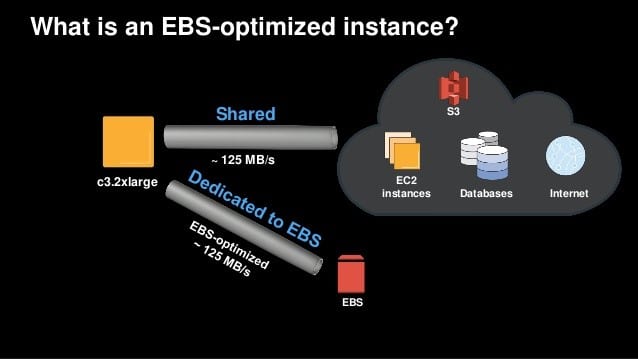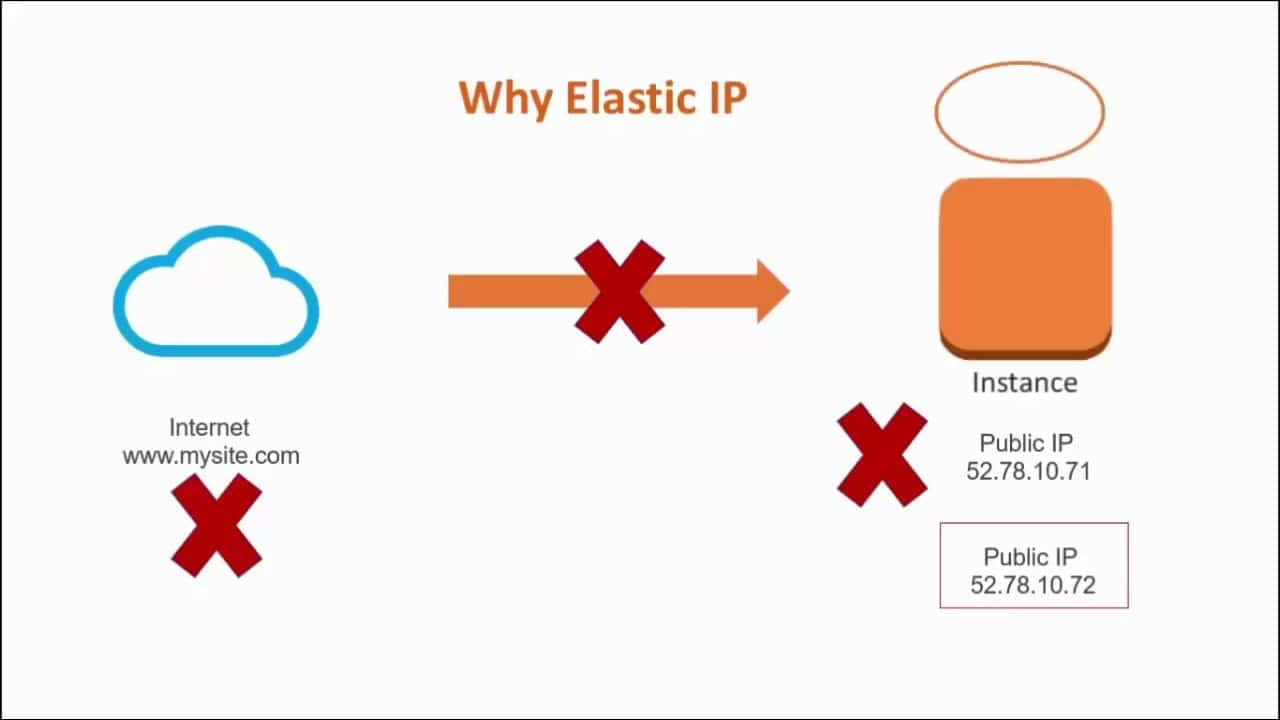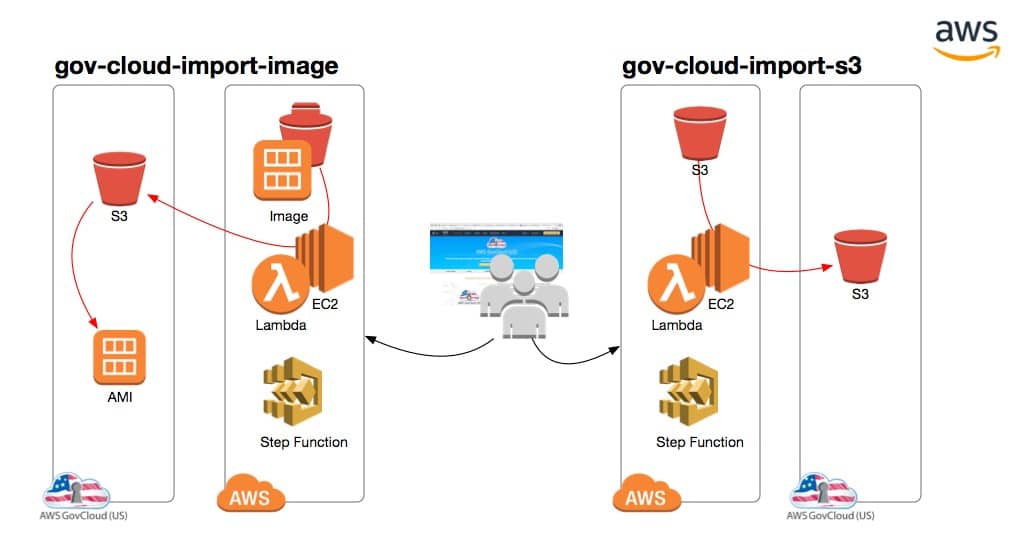AWS Inter Region Data Transfer Pricing
Data Transfer within the same AWS Region
Data which gets transferred into and outside, across Availability Zones or VPC Peering connections while staying in the same AWS Region will be charged a fee of $0.01/GB going in each one of those directions, from the following Amazon Services:
– Amazon EC2
– Amazon RDS
– Amazon Redshift
– Amazon DAX
– ElastiCache instances / Elastic Network Interfaces
For IPv4: The data being transferred into and outside from public or Elastic IPv4 address will get charged a fee of $0.01/GB in each one of the two directions.
For IPv6: The data transferred into to and outside from an IPv6 address in a different VPC will get charged a fee of $0.01/GB in each one of the two directions.
The data which is transferred between the following AWS service: EC2, RDS, Redshift, ElastiCache instances and Elastic Network Interfaces while being in the exact same Availability Zone is considered free of charge.
The data which is transferred between the following AWS services: S3, Glacier, DynamoDB, SES, SQS, Kinesis, ECR, SNS or SimpleDB and EC2 instances while remaining in the exact same AWS Region is considered free of charge. The AWS Services that get accessed through PrivateLink endpoints are going to incur some standard PrivateLink charges.
The data which gets transferred into and outside from Amazon Classic and Application Elastic Load Balancers through the use of private IP addresses, going between EC2 instances and the load balancer while being in the exact same AWS Region is considered free of charge.
See also
EBS-Optimized Instances Pricing

AWS Inter Region Data Transfer Pricing – EBS toptimized instances pricing
EBS-optimized instances have the following advantages:
– Enable EC2 instances the complete usage of IOPS provisioned on an EBS volume
– Deliver dedicated throughput between EC2 and EBS, having options between 500 and 4,000 Mbps dependent upon which instance type is being used
– Its dedicated throughput is going to minimize contention between EBS I/O and various traffic from the EC2 instance at hand, to allow for the optimal performance for EBS volumes.
– Designed to be utilized with both Provisioned and Standard IOPS EBS volumes. Upon being attached to EBS-optimized instances, Provisioned IOPS volumes are capable of completing single digit millisecond latencies
– Designed for delivering within ten percent of the provisioned IOPS performance every 99.9 percent of the time
~ Current Generation Instance types: EBS-optimization enabled for free by default.
~ Previous Generation Instances types: EBS-optimization prices are imposed.
Hourly price for EBS-optimized instances is added as well to hourly usage fee for supported instance types.
Elastic IP Addresses Pricing

AWS Inter Region Data Transfer Pricing – elastic IP addresses pricing
You will only be allowed 1 Elastic IP address having a running instance for no charged fee at all. In case you decide to associate other extra EIPs with this instance, you are going to get charged a fee for every extra added EIP associated with this instance for each hour on a pro rata basis. Extra added EIPs can only be found in VPC.
For assuring the effectiveness in usage of Elastic IP addresses, a tiny hourly charge will be imposed in the following cases:
– When they are not associated with a running instance
– When they are associated with either a stopped instance or unattached network interface.
No extra charge will be imposed for Elastic IP addresses created on your own from an IP address prefix entering AWS via Bring Your Own IP.
- Region: US East (Ohio)
- $0.005 for every extra added IP address coming with a running instance for each hour on a pro rata basis
- $0.005 for every Elastic IP address not having a running instance for each hour on a pro rata basis
- $0.00 for every Elastic IP address remap [first one hundred remaps per month]
- $0.10 for every Elastic IP address remap [additional remaps over one hundred per month]
Except if you get noted, all those prices do not include any applicable taxes and duties, along with VAT and applicable sales tax. Customers having a Japanese billing address, will get their usage of AWS as subject to the Japanese Consumption Tax.
– On-Demand Capacity Reservations Pricing
They will be priced at exactly the same price as that of their On-Demand instance usage. In the case that a Capacity Reservation gets completely utilized, you will merely have to pay for the instance usage while not having to pay anything for the Capacity Reservation. In the case that a Capacity Reservation gets just partially utilized, you will have to pay for the instance usage as well as for the portion of the Capacity Reservation which is still unused.
– T2 and T3 Unlimited Mode Pricing
In regards to the T2 and T3 instances in Unlimited mode, you will be charged for CPU Credits at a fee of:
- $0.05 for every vCPU-Hour for the following: SLES, RHEL and Linux
- $0.096 for every vCPU-Hour for the following: Windows with SQL Web and Windows
CPU Credit pricing remains exactly the same for instance of all sizes, for Spot, Reserved and On-Demand Instances, and across different regions.
– Auto Scaling Pricing
Auto Scaling can be enabled through Amazon CloudWatch and it shall not accompany any extra fees with it. Every instance being launched through Auto Scaling gets directly enabled for monitoring and you will be charged for the usual applicable Amazon Cloudwatch charges.
– AWS GovCloud Region Pricing

AWS GovCloud region pricing
It is an AWS region created for the sake of allowing the U.S. government agencies and contractors to be able to move their very sensitive workloads into the cloud through addressing particular regulatory and compliance requirements that are related to them.
~ Usage for Free Tier: calculated every single month across all regions excluding the GovCloud region, and will directly be added straight to your bill. There won’t be any roll over for unused monthly usage. Excluding EC2 running IBM, or GovCloud region.
~~ With the AWS’s Free Usage tier, comes free 15 GB of data transfer out very single month for every new AWS customer. (Aggregated across all AWS services for a period of 1 year, not including in the GovCloud region)
~~~ Rate tiers: They take into consideration your aggregate Data Transfer Out usage across the following services: EC2, EBS, S3, Glacier, RDS, SimpleDB, SQS, SNS, Storage Gateway, DynamoDB, and VPC.